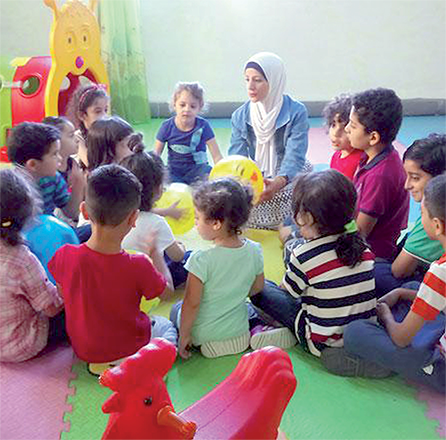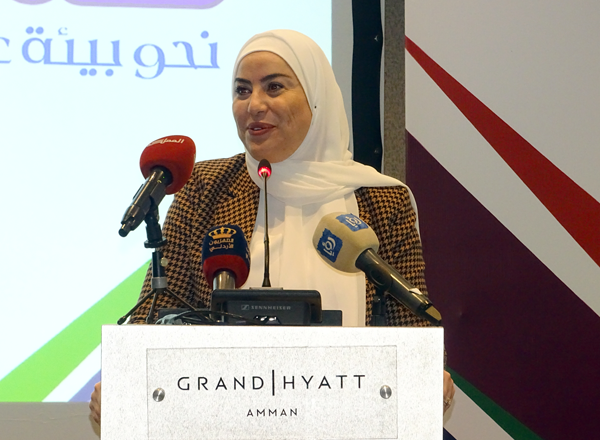You are here
Jordan’s 1.4m children face daycare shortage, 40,000 new centres needed — NCFA
By Mays Ibrahim Mustafa - Aug 24,2023 - Last updated at Aug 24,2023

A daycare centre in Amman (JT file photo)
AMMAN — There are roughly 1,100 licensed daycare centres in the Kingdom, said Director of the Family and Childhood Directorate at the Ministry of Social Development Amal Rihani. However, the National Council for Family Affairs (NCFA) says that this number cannot meet the needs of over 1 million children who reside in Jordan.
These centres care for around 38,000 children of approximately 3,300 working mothers, Rihani told Al Mamlaka TV on Wednesday.
The majority of home-based daycares in Jordan remain unlicensed. To address this issue and encourage the establishment of more licensed home-based daycares, the Ministry of Social Development is offering incentives in the form of grants to equip and furnish licensed home-based daycares. The ministry will also provide extensive and certified training courses for care providers, Rihani said.
The Jordan Times spoke with the director of Planning and Studies and the manager of daycare projects at the NCFA, Haitham Al Zou’bi. He discussed the NCFA’s efforts in the childcare industry and challenges faced by daycare operators as well as the socio-economic benefits of easy access to quality childcare.
Challenges faced by daycare operators
According to Zoubi, current daycare licensing regulations require reevaluation, as the requirements are “unnecessarily complicated” and burdensome for operators.
Easing regulations would encourage the establishment of more daycares in the Kingdom, provided that the changes do not compromise basic health and safety standards or lead to a reduced quality of services, he said.
Zou’bi also pointed out that monitoring and inspection should detect and help correct mistakes and shortcomings, ensuring a higher quality of services.
“If any inadequacies or violations are detected, the closure of the daycare should be preceded by guidance and an appropriate timeframe to correct the situation,” he said.
Benefits of early childhood investments
In terms of economic benefits, every $1 invested in quality early-childhood programmes can yield returns of over $4, according to Zou’bi.
“The NCFA advocates the idea that child-care services are not a luxury, but rather a necessity,” he said.
Daycares contribute to children’s social, cognitive and emotional development through play and learning programmes, in addition to fostering autonomy and independence, he added.
Moreover, providing affordable, quality childcare is closely linked to an increase in women’s economic participation, which is currently below 15 per cent in Jordan, he said.
According to Zou’bi, the Kingdom needs over 40,000 nurseries to accommodate Jordan’s approximately 1.4 million children. Supporting the establishment of this number of nurseries would additionally provide hundreds of thousands of jobs for women, he added.
NCFA efforts
The NCFA has prepared the first accredited curriculum for training and qualifying early childhood care providers at daycares, in cooperation with the Technical and Vocational Skills Development Commission (TVSDC) and the Vocational Training Corporation (VTC), said Zou’bi.
The NCFA is working on a project to support the establishment of twenty home-based daycares in underprivileged areas of Jordan, in cooperation with the Canadian non-profit organization WUSC (World University Service of Canada).
So far, the project has helped establish ten home-based daycares in the Eastern Amman, Irbid and Zarqa, which are currently operated by VTC-certified care providers, he said.
Related Articles
AMMAN — The Ministry of Social Development on Wednesday announced that its new system of nurseries (No.
AMMAN — The findings of a study titled “Childcare Services in Jordan: Assessment of Supply and Demand” revealed that low-income households i
AMMAN — Local and governmental organisations on Monday discussed means of expanding social protection for the daycare sector in Jordan.The c













